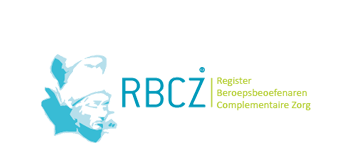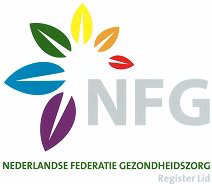Integrative psycho-therapy & Coaching
Praktijk van Gogh
Why?
I would like to help people in their process of growth. I believe that everybody sometimes needs help due to common emotional issues, like burn-out, stress, trauma, mourning, divorce, self confidence, coaching, dilemmas or just a understanding person for a talk.
Integratieve therapy
In Integrative Psychotherapy, multiple methods can be used in addition to conversations such as Brainspotting, EMDR, heart coherence, Psychodrama, NLP, Transactional Analysis, Psychotrauma, Parent Identification, Relaxation Techniques, Walking Therapy, Draw and Read Drawings, etc.
In addition, every session and conversation is confidential and it is possible to talk openly. You are listened to without judgment. Sometimes things happen in life that make you feel "stuck" that you do not get it anymore. It could also be that more serious things are happening in your life and this can cause a blockage.
Together we will look at what you would like to work on and how we can achieve this. Which way and method best suits you, because no human is the same, and everyone has challenges in life.
Trauma
Certain events can deeply affect people's lives. Some people are able to "process" these experiences on their own. Psychological symptoms develop in others. It is often about memories of the shocking event that continue to force itself on, including frightening images (re-experiences, flashbacks) and nightmares. Other complaints that often occur are shock and avoidance reactions. This is usually referred to as a "post-traumatic stress disorder" (PTSD).
These are complaints that have arisen as a direct consequence of a concrete, nasty event, where thinking of it still evokes an emotional response
Brainspotting
Brainspotting is a psychotherapeutic method that focuses on the processing of conscious and unconscious blockages that affect our daily functioning negatively. It is a low-threshold method for processing anxiety disorders, stress-related complaints, physical complaints, attachment problems, addictions, ADHD, autistic disorders and all other blockades that affect and perform our performance. Brainspotting combines and integrates perfectly with existing therapies or other ways of guiding people, but can also be used on their own.
When someone talks about something, he or she looks at a certain point. When that tin (eye position) is held at that point, relevant areas in the brain are stimulated, thereby addressing information stored in those areas in the brain and in the body in the form of unprocessed "information capsules" and resolving .
Walking therapy
Walk Talk Therapy is just like it sounds—the client and the therapist are outside walking during therapy instead of sitting inside an office.
Research has consistently shown that exercise can significantly impact anxiety and stress while improving overall mood. It is increasingly apparent that walking is not only good for your physical health, but it is also good for your mental health.
Walking therapy is very effective in getting people with burnout and depression back into motion. Walking ensures that you get out of your head and come back in contact with your body. You get rid of your negative spiral of thought and you get new energy
EMDR
EMDR is intended for the treatment of people with PTSD and other trauma-related anxiety complaints.
Eye Movement Desensitization and Reprocessing, abbreviated to EMDR, is a therapy for people who continue to suffer from the consequences of a shocking experience, such as an accident, sexual violence or an violence incident. EMDR was first described more than 25 years ago by the American psychologist Francine Shapiro. In the following years, this procedure was further developed and developed into a fully-fledged and effective therapeutic method
Times
By appointment:A session takes 50 minutes. For relationship therapy, one and a half hours are normal scheduled.Times and the number of sessions depends on your need and availability.
Barbara van Gogh
As a child, I was already curious to understand people better and understand the psychology. However, I began my career in medical microbiology. After working for a number of years, I switched to ICT, where I did different projects in different companies and in different countries. This has increased my knowledge of cultures and languages.
Despite this, there remained a need to help people and understand them better. The inner urge to change and the search of a friend eventually brought me in contact with integrative psychotherapy.
What attracts me is that it is wide and assumes that everyone has a personal growth path and no one can be treated in the same way.
I asked for information and, to my surprise, I was enrolled for the training from one moment to another. I decided to actually go on, curious and nothing to lose.
And here I am curious and open ... to help you.
In addition to the course Integrativeve Psychotherapy, I regularly follow other courses and further education to stay up to date and keep up with new developments, like brainspotting.
Currently I have a practice in 2 locations. I work in the Haarlem region in the Netherlands and in Brussels.
I can help you in Dutch or English.
What is Integrative Psychotherapy
At all times, all over the world, there have been people who feel gloomy, afraid, confused or chased, or do things that cause them to be in trouble and fail to change their own problems . Each time, each culture has its own way of thinking about psychological problems and its own ways to address these problems.
In integrative psychotherapy, the therapist combines various psychotherapeutic theories. In the past, psychotherapists were trained in one theory, creating cabinets of experts in psychoanalysis, humanistic psychology, behaviorism, etc.
Today, psychotherapists look more closely at their colleagues. The idea behind this is to increase the effectiveness of psychosocial treatments.
Integrative Psychotherapy also refers to the bringing together of the affective, cognitive, behavioral, and physiological systems within a person, with an awareness of the social and transpersonal aspects of the systems surrounding the person. These concepts are utilized within a perspective of human development in which each phase of life presents heightened developmental tasks, need sensitivities, crises, and opportunities for new learning.
When determining a method or path, the patient's need for assistance is taken as a starting point. The aim of an integrative psychotherapy is to facilitate wholeness such that the quality of the person's being and functioning in the intrapsychic, interpersonal and sociopolitical space is maximized with due regard for each individual's own personal limits and external constraints.
Within this framework it is recognized that integration is a process to which therapists also need to commit themselves. Thus, there is a focus on the personal integration of therapists. However, although a focus on personal growth in the therapist is essential, there needs also to be a commitment to the pursuit of knowledge in the area of psychotherapy and its related fields. There is a particular ethical obligation on integrative psychotherapists to dialogue with colleagues of diverse orientations and to remain informed of developments in the field.
Reimbursements by the health insurance company.
Insurance
What do insurers reimburse?
Various health insurers provide a (usually partial) reimbursement of the costs of the therapy.
Check this carefully with your own insurer. The insurer can ask for the codes that belong to my practice. They are listed below.
Healthcare provider AGB code: 94105131 or 90106265
Practice AGB code: 94064432 or 90065484
You can also inquire with the municipality about the reimbursements from the WMO or PGB (personal budget). Sometimes there are also possibilities through other benefits agencies or your employer.
Contact
Call now +31 6 2297 6636 /+32 4 8794 6517
+32 4 8794 6517
Haarlem, The NetherlandsBrussels, BelgiumInfo@praktijkvangogh.com
Info@praktijkvangogh.com








